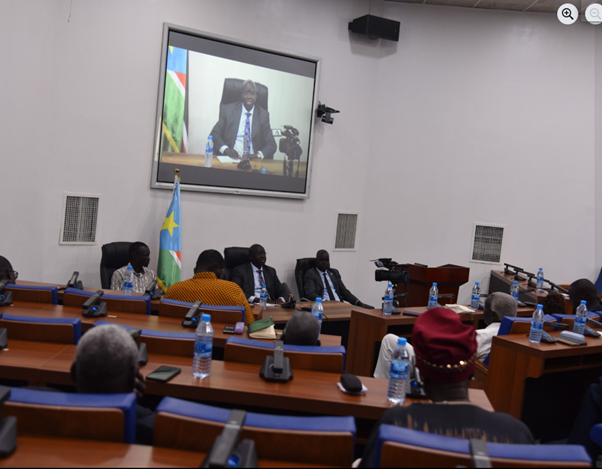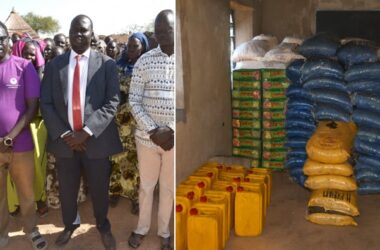By Lodu William Odiya
The Governor of Warrap state has advised the state parliamentary caucus to deliver services to the community with the enormous resources in the state.
In a statement issued by the state press unit, Bol Wek Agoth’s remark came during a briefing to the parliamentarian about peace security and development in the state on Friday.
“It is not enough to liberate the country, it will be enough when we build roads, it will be enough when we deliver services to our people as a dividend for the many years of suffering during the liberation struggle” statement partly read.
According to the statement Wek briefed the State Parliamentary Caucus, where he enlightened them of their intrinsic role within his inclusive and collective approach of addressing the problems of Warrap State.
“Parliamentarians are the ones who discuss and pass the budget. Therefore, I urge you to convince the national government to increase the allocation for infrastructure development and service delivery.” H.E. Amb. Bol Wek affirmed.
The statement also underscored he briefed the gathering about the concluded State of Emergency dissemination campaign in Warrap State.
Additionally, the statement also stressed that he presented opportunities and challenges facing Warrap State for discussions.
Furthermore, the statement emphasized that Wek presented a concern about unnecessary abject poverty, while Warrap State is sitting on enormous resources.
“From potential oil in Twic and Greater Tonj plus the significant livestock wealth that can fund the future of Warrap State if markets are organized” the statement read.
It also underlined that the Caucus Members appreciated the Governor’s leadership approach and they overwhelmingly supported a Warrap State Conference to comprehensively discuss; Investments, total disarmament, development, Hybrid Justice System, lasting peace and security in the state.
The statement further stated Governor Wek agreed with the law makers to orient their respective constituencies about proper town planning which designates residential areas, drainage systems, industrial centers and economic zones which promotes hygiene and encourage investments.
Governments had long recognized the importance of engaging communities across sectors to deliver services that extend well beyond health care services, infrastructure development, food and security of the people.



